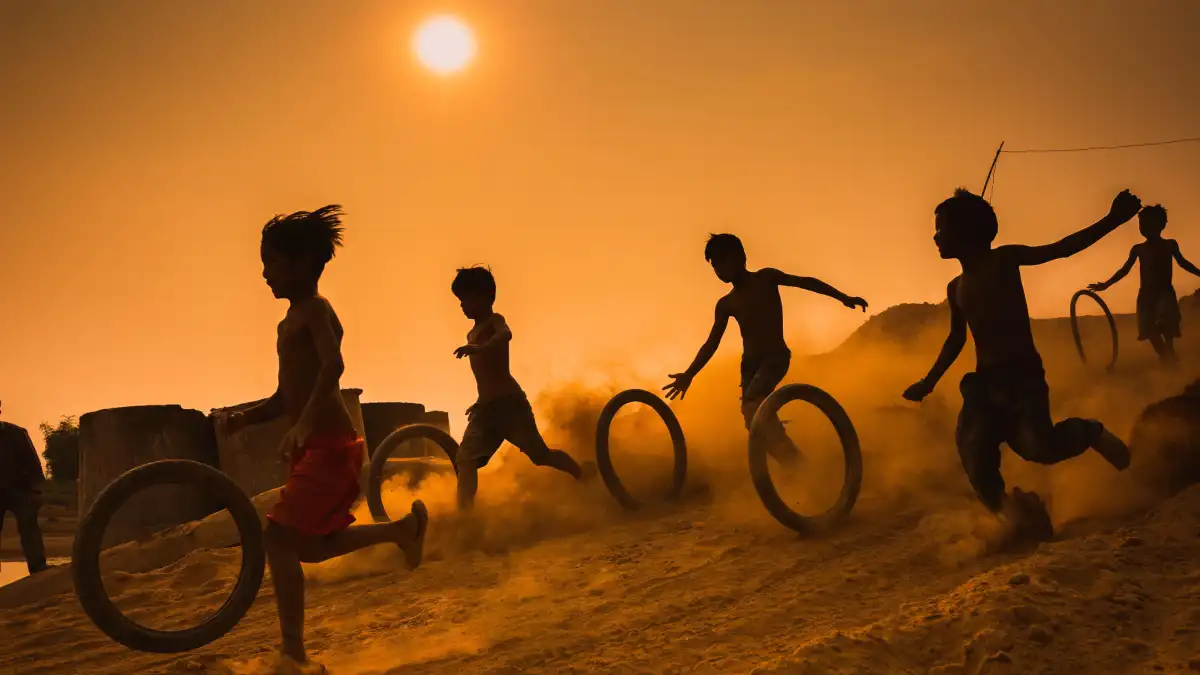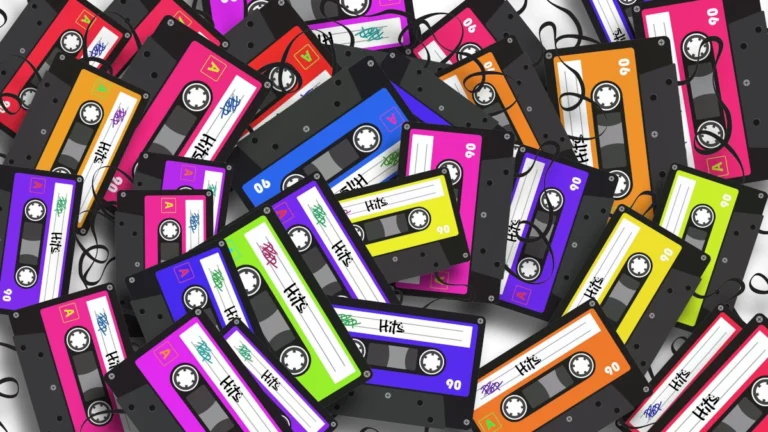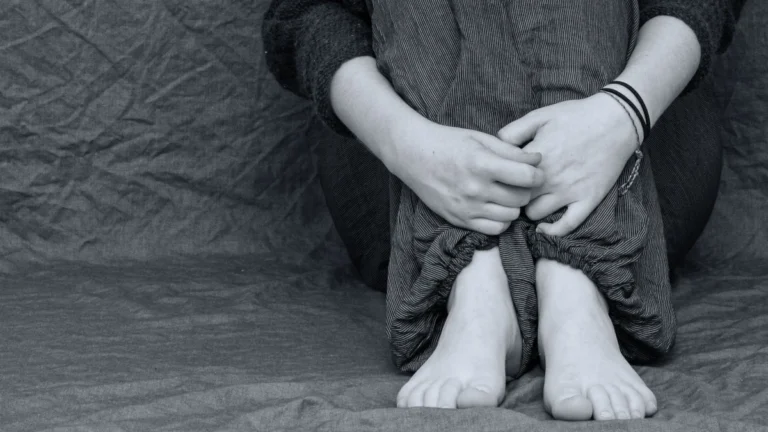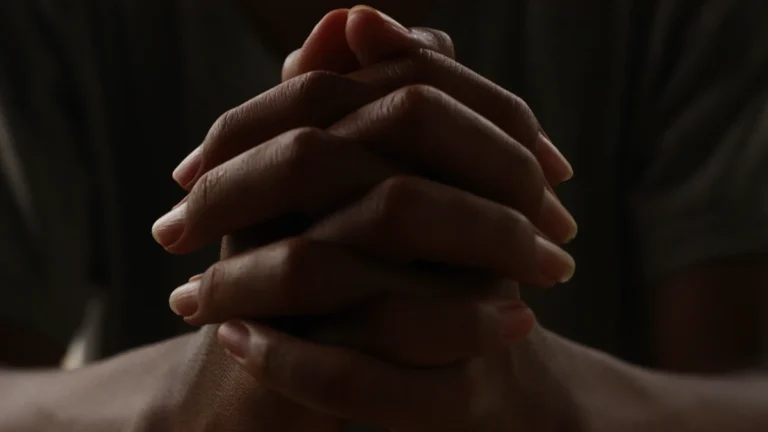A barefoot lesson in joy from the edge of the so-called developed world.
Libreville, 2010. The forest clearing.
I was on a business trip to Libreville—Gabon. In those days, I treated business travel the way hedge funds treat acquisitions: squeeze it dry, extract maximum return, discard the carcass. My calendar was always brimming—meetings, working sessions, networking, rinse and repeat. It made sense when the backdrop was Zurich, Houston, or Seoul. Africa, however, plays a different tune.
You get your audience with a minister. Then another with some towering figure of local commerce. Between the two? Two days of nothing. Not a delay. Not a hiccup. Just—life at its own damn pace.
So I walked.
I like walking. Not Fitbit-counting, posture-corrected, Nordic-poled walking. I mean real walking—getting lost, tracing the spine of a city, letting the dust get under your nails and the smells into your coat. In Libreville, I wandered the beachfront toward the south. There’s a northern beach and a southern one, with a modest forest separating them. I cut through it on a barely-visible footpath.
That’s where I saw her.
A woman and her two small children living in a clearing. Not even a proper hut—just a makeshift tarp and an open-fire kitchen. The children were naked, which usually signals poverty, but this wasn’t your NGO sob story. The place had order. It had a rhythm. The kids looked healthy. Fed. They weren’t crying. They were laughing—wild, sincere, uncut joy. They had nothing, and yet they were fine.
There was a serenity to it. A kind of beauty you don’t photograph because it would instantly look like propaganda. It didn’t fit the narrative of misery we’re taught to expect.
I stood there, motionless. Staring. A man with Platinum frequent flyer status, staring at a barefoot child playing in dirt with more delight than most executives get from a promotion. What kind of future did they have? What horizons? What chance at any of the things we call opportunity?
And yet, I envied them. Not maliciously—this wasn’t some ugly inversion of privilege. It was a clean, aching jealousy. A longing. Not for their life, but for the simplicity of it. For their contentment. For the way their joy didn’t seem earned or scheduled. It simply was.
Back at the hotel, under high-thread-count sheets and air conditioning that worked too hard, I stared at the ceiling and thought: I fly business class, dine in overpriced restaurants, and sleep in rooms where the curtains open with a remote. And still—they smiled more. And I felt the sting of that.
The best things in life really are free. If you’re brave enough to want them to be.
The Western Efficiency Trap
I had years when I clocked over a million air miles annually. Which sounds glamorous, if you’ve never lived it. It isn’t. It’s compression. Schedule densification. Meetings slotted like Tetris bricks. Nothing bled over. Nothing lingered.
That’s the mindset: extract, optimize, repeat. Efficiency as virtue. Hustle as identity.
In that world, every second is accounted for. Delay is sin. Slack is weakness. And yet, in Libreville, slack was all I had. The system didn’t care how important I thought I was. That dead time—those yawning gaps between meetings—weren’t waste. They were just how things work.
And in that unplanned pause, I walked. And in that walk, I found a clearing. And in that clearing, I found strategic joy—not as a reward, but as a tool. Not the smug minimalism of Silicon Valley, but the feral, off-grid kind. Not luxury, not performance. Resilience.
Hong Kong, Age 22: The Letdown
I first learned this lesson not in Libreville but much earlier—by accident.
I was 22. Done with military service. Still drunk on inherited wanderlust and the echoes of my father’s sea tales. I saw a newspaper ad for cheap flights to Hong Kong. So I packed a bag and went.
Arrived in the evening. Caught a cheap bus into Kowloon. Scavenged a budget room (barely). Then wandered out to the waterfront to soak in the wonder of the East.
It was dead quiet.
Just me, a soggy cheeseburger, and a view of Hong Kong Island across the harbor. The lights twinkled, but I felt… nothing. No thrill. No awe. I waited for something to happen. Some external jolt of joy. But it never came.
Hadn’t I done my part? I’d shown up, hadn’t I? That was supposed to be enough. That’s what the brochures implied: pay the ticket, cue the magic.
But the magic was a no-show.
Instead, I stood there chewing in the dark, looking at a skyline that refused to entertain me, and felt cheated. Where was the excitement I thought I deserved?
And then it hit me. Not like an epiphany, more like a quiet deflation: joy doesn’t arrive on command. You don’t get to feel alive just because you booked the right destination. If I wanted satisfaction, I had to generate it. Myself. Internally. I had to wire myself for delight—not in what I thought should happen, but in what was happening.
That night, a half-eaten cheeseburger in hand, I stumbled into a concept I’d later call expectational suffering—the psychic hangover when reality fails to match the fantasy we marketed to ourselves.
If I could enjoy that moment—a stale burger and a quiet harbor—then I was free. If not, then no luxury suite or Instagram-perfect scene would ever satisfy me.
There’s a scene in The Last Samurai where Katsumoto speaks of Bushido:
“A perfect blossom is a rare thing. You could spend your life looking for one, and it would not be a wasted life. There is life in every breath… in every cup of tea.”
Or every greasy bite. Or every keystroke.
My Father’s Footsteps
My father was born into the shadow of one war and raised in the wreckage of another. Postwar Vienna was not gentle. There were no safety nets, no startup incubators, no midlife reinventions. There was just rubble and need.
He left Austria on foot. Walked to Switzerland. Then Germany. Then Denmark. Then Sweden. Eventually ended up in Norway, working as a messman on a cargo ship. He saw the world—long before gap years were a thing.
His stories were postcards from places I dreamed of. His adventures lit the fuse under my own.
But the difference was this: he never expected joy to be automatic. He was not entitled to thrill. He wrung meaning from simplicity—wind in his face, a good joke, the smile of a stranger. He didn’t need validation. Didn’t need spectacle.
He was not a monk. He just knew enough to enjoy enough.
I chased the same dragons, but in private jets. He rode the world on foot and still smiled more than most millionaires.
He understood what I had to learn the hard way: contentment isn’t earned. It’s constructed.
Back in the Forest
Despite all that—despite learning the lesson in Hong Kong, despite having a father who modeled it for me—I still stood there in a forest outside Libreville, stunned by three barefoot people who seemed more at peace than I had felt in months.
Because the lesson, no matter how well learned, needs rehearsal. We forget. We let status and stress smother what we once knew to be true. We start believing again in significance and its evil twin: importance.
That little family in the clearing hadn’t forgotten.
They weren’t drowning in self-help books or mindfulness apps. They weren’t waiting for the right playlist or the next retreat. They had internal wiring. Contentment as infrastructure. Not a prize, not a goal. A habit.
Because contentment is not a product. It’s not something you buy or win or hack.
It’s craftsmanship. It’s the discipline of attention. The courage to notice the good things. Not the imagined ones—the real ones. The small ones. The free ones.
The Tactical Smile
Contentment isn’t passive. It’s not soft. It’s not “giving up.” It’s a weapon. A blunt one. The kind you hold up in a storm to say, Not today.
It’s a refusal. A middle finger to urgency. To manufactured scarcity. To your own ambition when it starts turning into a parasite.
Smiling when things are good is normal. Smiling when everything feels like garbage? That’s strategy.
When I worked as a transfer driver in Paris, alone in my car for hours, I used to force myself to smile. No reason. Just a mechanical grin. Guess what? The mind catches up. The fake smile becomes a real one soon enough. It’s neurochemistry, not philosophy.
That’s the trick: joy doesn’t need proof. It doesn’t require witnesses. Most of the time, what we call “experience” is just overpriced packaging for something we already possess.
You don’t need more. You need to feel more of what’s already here.
The best things in life are free—if you want them to be.




